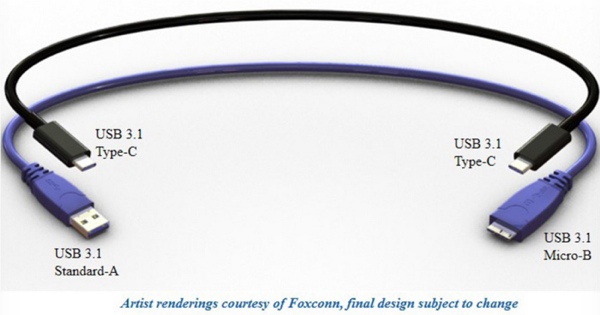New Reversible USB Design Finished
The standards group that have been developing the next generation of the USB cable and connector have finally finished their work and have now passed the exact specifications to the USB Implementers Forum.
Expect a smaller USB port with that will support cables and peripherals that can plugged in any way around! There are also significant improvements in the data transfer speeds that can be supported – 10 Gigabits per second which is twice the current maximum supported by USB 3.0.
The next stage is the manufacture of products, cables and peripherals to take advantage of the new specification. Dubbed “USB Type-C” the new connector is not dissimilar to Apple’s Lightning cable/connector.
Whilst USB Type-C has many benefits it is not compatible with the current USB standard so it’s going to take a while before it gains any critical mass and of course users will have to upgrade all of their peripherals to take advantage of the benefits on offer.
The move from USB 2.0 to USB 3.0 has been slow so it’s going to be interesting to see how quickly the market adopts this new standard. Its adoption is likely to be helped if it’s picked up and marketed by the makers of Android Smart Phones – it’s unlikely it will get any help from Apple who are likely to prefer their own Lightning standard.
USB flash drives that take advantage of the Type-C connector are likely to emerge later this year albeit we may just see first generation prototypes in 2014. Of course without PC’s, laptops, tablets and smartphones to plug them into it’s going to take a while!
Inevitably USB flash drives that take advantage of this new specification will be expensive so they’re unlikely to be used as promotional items and give-aways (unless you’re a company with deep marketing budgets and you’re targeting classic early adopters!). They’re also likely to have much larger data storage capabilities that the typical 8GB or 16GB USB sticks you see today – after all there is little point in putting all that power and speed into a USB stick and then equipping it with 8GB of memory that you could fill in seconds. It’d be a bit like designing a Ferrari with a 1 litre petrol tank – it’ll look fantastic, sound fantastic and drive amazingly well but it would only go 100 metres before you’d need to fill it up with petrol again!

